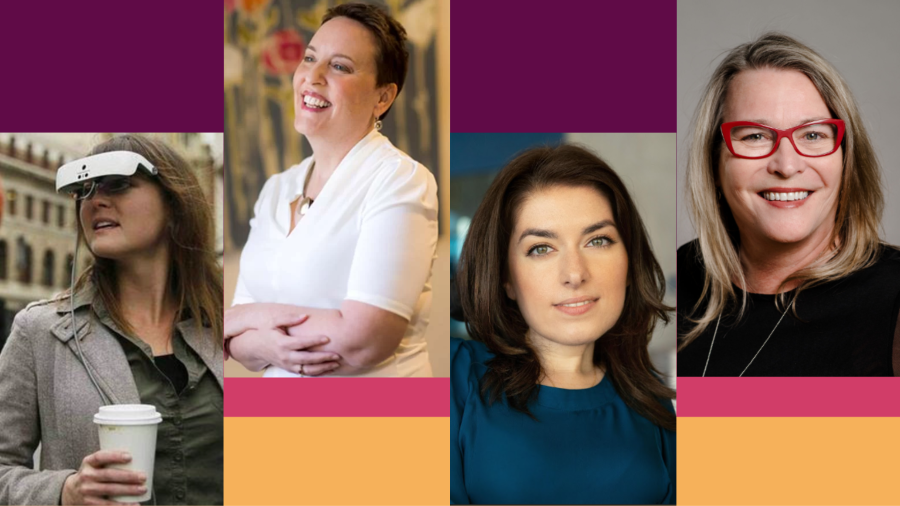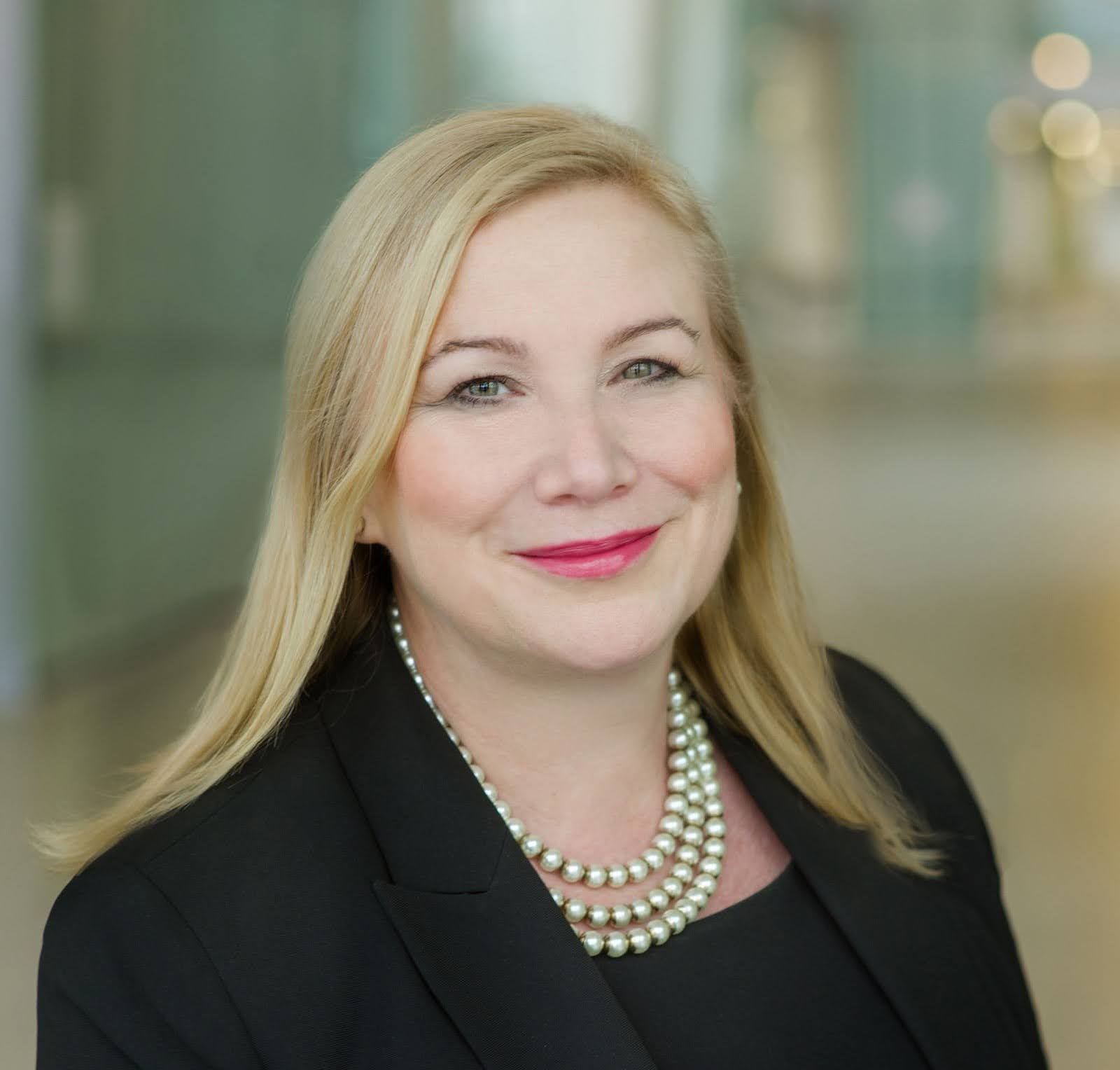Women leaders living with disabilities lead by example, call for a more equitable workplace

Yvonne Felix, an award-winning artist, entrepreneur and advocate for intersectional disability and inclusion; Wanda Deschamps, founder and principal of Liberty Co.; Maayan Ziv, CEO of AccessNow; and Maureen Haan, president and CEO of The Canadian Council on Rehabilitation and Work, spoke at a virtual event on February 29, 2024, about women leaders living with disabilities.
Maayan Ziv, CEO of AccessNow, yearns for the day when conversations around creating inclusive spaces for equity-deserving groups will no longer need to happen. “I would love to show up and not feel like there is an elephant in the room or an extra job that I have to carry, because the space that I'm working in, the people that I'm working with, don't really care—and I mean that in the best possible way,” she said. AccessNow, an app and website that offers information about the accessibility status of public places worldwide in more than one million places in 107 countries, has relentlessly campaigned for the rights of persons living with a disability. Ziv, who uses a power wheelchair, said the discussion about having an intersectional framework through a disability lens at the workplace begins with coming in without any preconceived notions about disability. “Rather than making assumptions like ‘Maayan equals wheelchair,’ having an open-minded approach to just hearing directly from the people that we are working with is a much healthier way to start an engagement when we're talking about disability at the workplace or in leadership,” she said.
Although research indicates that persons with disabilities are often highly educated and qualified to make significant contributions to the Canadian economy, they are often subjected to discrimination and stereotyping by an ableist system that hinders their professional growth. At a recent event hosted by the Diversity Institute and Women of Influence (external link) , Inclusive Leadership: Leading and Living With Disabilities, women living with disabilities came together to address some of the challenges they face and ways to remedy them.
Dr. Wendy Cukier, founder and academic director of the Diversity Institute and academic research director of the Future Skills Centre (external link) , moderated the panel. She spoke about the importance of placing persons with disabilities at the centre of discussions about creating an inclusive skills and employment ecosystem. According to the latest numbers from the 2022 Canadian Survey on Disability, (external link) 27% of Canadians aged 15 years and over have one or more disabilities that limit them from performing their daily activities. Disability is also a strong predictor of labour market earnings and economic status. In Canada, persons with severe disabilities have worse employment outcomes than do high-school dropouts.
Wanda Deschamps, founder and principal of Liberty Co., added, “It’s really important to consider an intersectional approach, because we often still focus on physical disabilities and place more of an emphasis on physical disabilities than we do invisible disabilities, even though invisible disabilities are the majority.” Wanda Deschamps said. Her company is focused on increasing the participation of the neurodiverse population in the workforce with an emphasis on autism. Deschamps herself received a diagnosis a few months before her 47th birthday. “The autistic, neurodivergent perspective is no less important than those who are aware that they're disabled or have a different brain makeup from birth,” she said.
Cukier agreed, adding that intersectionality is a critical lens that also considers how disability intersects with other identity markets. “For example, increasingly research shows that the experience of anti-Black racism harms mental and physical health and produces mental and physical disabilities. There's evidence that intergenerational trauma among survivors of genocide, refugees, immigrants and Indigenous Peoples needs to be considered when we work with equity-deserving groups and has an impact on mental health and disability,” she said.

Dr. Wendy Cukier, founder and academic director of the Diversity Institute and academic research director of the Future Skills Centre, moderated a panel at an event about women leaders living with disabilities.
Creating inclusive workplaces
According to Maureen Haan, president and CEO of The Canadian Council on Rehabilitation and Work, allowing a person to bring their whole selves to the workplace is beneficial to that person and their co-workers, leading to more inclusive workplaces. Haan’s work, focused on equitable and meaningful employment for people with disabilities, lends her a unique understanding of the benefits of hiring a person with a disability. “One of the key benefits of having an intersectional framework through a disability lens at the workplace is a sense of belonging, which leads to that sense of a positive workplace for everybody,” Haan said. “When we incorporate a variety of our experiences and our identities into what we bring to work, it leads to more comprehensive and inclusive solutions to challenges.”
Yvonne Felix, an award-winning artist, entrepreneur and advocate for intersectional disability and inclusion, added that in addition to being open-minded and creating an environment where conversations are encouraged, there also needs to be a degree of nuance in the resources and accommodations offered. “Being able to go to a job or be able to work and collaborate and say, ‘This is what I need, and this is what I need to do it’ is something I’d like to see being done at workplaces,” Felix said. “I set up my studio, my private space, because I wanted a space where I could go and I did not have to explain a single thing to anyone.”
Looking ahead, Haan noted that focusing on skills and talent, rather than the disability, is important. “Nobody will and nobody should hire anybody based on a disability; they hire people based on what they can do,” Haan said. “Also, speaking about allyship, people have to save space for people, but then the people who are taking up that space once other people come, they have to leave. So being an ally and being an accomplice or being a sponsor is all really great, but then they also have to move on. And stop talking for people who can speak for themselves. Those are some things that need to change.”
“We need disabled leaders on boards of directors, men and women both; yet, so often, disabled women are an afterthought. That needs to change.”
Deschamps said a main barrier to workplace participation and advancement for persons with disabilities, especially among those living with invisible disabilities, is a reluctance to self-identify. “One of the key things that women in leadership need to do is disclose their disability,” she said. “Unfortunately, disabled women experience that double bind of sexism and ableism. So, often we can mention disabled men or divergent men who disclose, but then we're searching [for] who are the well-known neurodivergent women who are disclosing,” she said. “We need disabled leaders on boards of directors, men and women both; yet, so often, disabled women are an afterthought. That needs to change.”
There has been a move in the right direction with initiatives like the government of Canada’s 50 – 30 Challenge (external link) , which aims to advance gender parity and increase representation of other equity-deserving groups, including people living with disabilities, on boards and in leadership roles. Even so, a 2022 Corporations Canada report (external link) noted that persons with disabilities hold only .4% of board seats. Further, as Diversity Institute research has found, Canadian women living with disabilities face discrimination and biases as they attempt to navigate board positions.
Ziv reinforced the importance of work to have persons with disabilities better represented in leadership roles: “Without disabled representation at the table guiding the decisions [and] influencing the outcomes, we end up with the reality of today.”